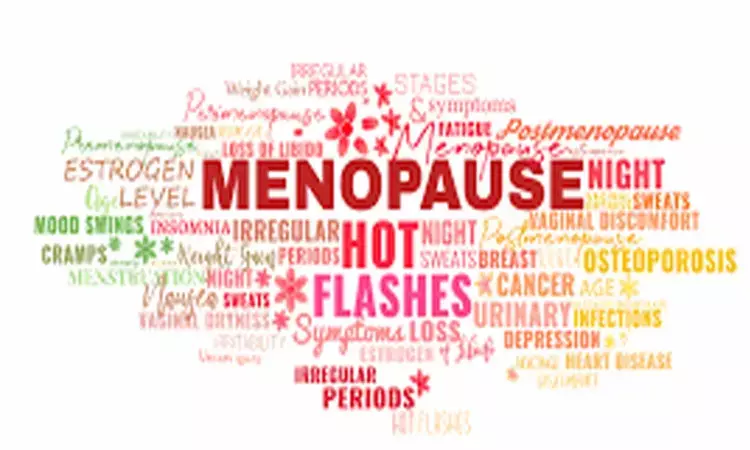- Home
- Medical news & Guidelines
- Anesthesiology
- Cardiology and CTVS
- Critical Care
- Dentistry
- Dermatology
- Diabetes and Endocrinology
- ENT
- Gastroenterology
- Medicine
- Nephrology
- Neurology
- Obstretics-Gynaecology
- Oncology
- Ophthalmology
- Orthopaedics
- Pediatrics-Neonatology
- Psychiatry
- Pulmonology
- Radiology
- Surgery
- Urology
- Laboratory Medicine
- Diet
- Nursing
- Paramedical
- Physiotherapy
- Health news
- Fact Check
- Bone Health Fact Check
- Brain Health Fact Check
- Cancer Related Fact Check
- Child Care Fact Check
- Dental and oral health fact check
- Diabetes and metabolic health fact check
- Diet and Nutrition Fact Check
- Eye and ENT Care Fact Check
- Fitness fact check
- Gut health fact check
- Heart health fact check
- Kidney health fact check
- Medical education fact check
- Men's health fact check
- Respiratory fact check
- Skin and hair care fact check
- Vaccine and Immunization fact check
- Women's health fact check
- AYUSH
- State News
- Andaman and Nicobar Islands
- Andhra Pradesh
- Arunachal Pradesh
- Assam
- Bihar
- Chandigarh
- Chattisgarh
- Dadra and Nagar Haveli
- Daman and Diu
- Delhi
- Goa
- Gujarat
- Haryana
- Himachal Pradesh
- Jammu & Kashmir
- Jharkhand
- Karnataka
- Kerala
- Ladakh
- Lakshadweep
- Madhya Pradesh
- Maharashtra
- Manipur
- Meghalaya
- Mizoram
- Nagaland
- Odisha
- Puducherry
- Punjab
- Rajasthan
- Sikkim
- Tamil Nadu
- Telangana
- Tripura
- Uttar Pradesh
- Uttrakhand
- West Bengal
- Medical Education
- Industry
About 25% of peri- and postmenopausal women experience palpitation distress: Study

New Rochelle, NY - Menopausal palpitations are described as loud, racing, or skipped heart beats, flip-flops, fluttering, or pounding that occurs with or without dizziness and/or lightheadness.Up to 46.8% of menopausal women report having palpitations, yet the symptom is relatively understudied. Compared with the abundance and breadth of research on menopausal vasomotor symptoms and sleep, there is a relative scarcity of research on menopausal palpitations.
Researchers have found in a new study that many menopausal women report having palpitation distress and the likelihood of women reporting palpitation distress was higher with worse insomnia, depressive symptoms, perceived stress, and menopausal quality of life (QOL) issues.
Study findings have applicability to clinical practice and research. For clinical practice, it is well established that responding to symptom distress is important to patients' quality of life. Health care professionals should consider assessing whether peri- or postmenopausal women report palpitations and their degree of associated distress.
These findings have been presented in Journal of Women's Health.
Palpitations are described as a pounding or racing heart, skipped heart beats, flip-flops, or fluttering that occurs with or without dizziness or lightheadedness. A range of 19.6% to 33.5% of perimenopausal and menopausal women reported having palpitation distress.
"Future research could explore associations or clustering among palpitations and other menopausal symptoms and determine if palpitations predict, co-occur, or result from other symptoms, insomnia, depression, stress, and overall menopausal QOL," state Janet Carpenter, PhD, RN, Indiana University, and coauthors.
The researchers concluded that Menopausal palpitation distress is common and associated with demographic, clinical, symptom, and QOL factors. Findings can be used for screening in clinical practice and to justify additional research on this understudied symptom.
"With, on average, 25% of women experiencing palpitation distress, this is a symptom that healthcare providers should be aware of when evaluating peri- and postmenopausal women," says Journal of Women's Health Editor-in-Chief Susan G. Kornstein, MD, Executive Director of the Virginia Commonwealth University Institute for Women's Health, Richmond, VA.
For further reference log on to:
Dr Kamal Kant Kohli-MBBS, DTCD- a chest specialist with more than 30 years of practice and a flair for writing clinical articles, Dr Kamal Kant Kohli joined Medical Dialogues as a Chief Editor of Medical News. Besides writing articles, as an editor, he proofreads and verifies all the medical content published on Medical Dialogues including those coming from journals, studies,medical conferences,guidelines etc. Email: drkohli@medicaldialogues.in. Contact no. 011-43720751


